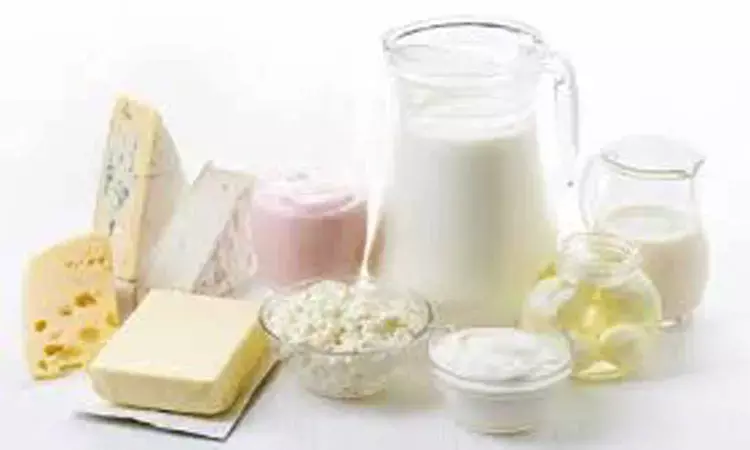- Home
- Medical news & Guidelines
- Anesthesiology
- Cardiology and CTVS
- Critical Care
- Dentistry
- Dermatology
- Diabetes and Endocrinology
- ENT
- Gastroenterology
- Medicine
- Nephrology
- Neurology
- Obstretics-Gynaecology
- Oncology
- Ophthalmology
- Orthopaedics
- Pediatrics-Neonatology
- Psychiatry
- Pulmonology
- Radiology
- Surgery
- Urology
- Laboratory Medicine
- Diet
- Nursing
- Paramedical
- Physiotherapy
- Health news
- Fact Check
- Bone Health Fact Check
- Brain Health Fact Check
- Cancer Related Fact Check
- Child Care Fact Check
- Dental and oral health fact check
- Diabetes and metabolic health fact check
- Diet and Nutrition Fact Check
- Eye and ENT Care Fact Check
- Fitness fact check
- Gut health fact check
- Heart health fact check
- Kidney health fact check
- Medical education fact check
- Men's health fact check
- Respiratory fact check
- Skin and hair care fact check
- Vaccine and Immunization fact check
- Women's health fact check
- AYUSH
- State News
- Andaman and Nicobar Islands
- Andhra Pradesh
- Arunachal Pradesh
- Assam
- Bihar
- Chandigarh
- Chattisgarh
- Dadra and Nagar Haveli
- Daman and Diu
- Delhi
- Goa
- Gujarat
- Haryana
- Himachal Pradesh
- Jammu & Kashmir
- Jharkhand
- Karnataka
- Kerala
- Ladakh
- Lakshadweep
- Madhya Pradesh
- Maharashtra
- Manipur
- Meghalaya
- Mizoram
- Nagaland
- Odisha
- Puducherry
- Punjab
- Rajasthan
- Sikkim
- Tamil Nadu
- Telangana
- Tripura
- Uttar Pradesh
- Uttrakhand
- West Bengal
- Medical Education
- Industry
Raw milk may do more harm than good

Raw or unpasteurized cows' milk from U.S. retail stores can hold a huge amount of antimicrobial-resistant genes if left at room temperature, according to a new study from researchers at the University of California, Davis.
The study also found bacteria that harbored antimicrobial-resistant genes can transfer them to other bacteria, potentially spreading resistance if consumed. The study was published in the journal Microbiome.
"We don't want to scare people, we want to educate them. If you want to keep drinking raw milk, keep it in your refrigerator to minimize the risk of it developing bacteria with antibiotic-resistant genes," said lead author Jinxin Liu, a postdoctoral researcher in the Department of Food Science and Technology at UC Davis.
LACKING IN PROBIOTICS
An estimated 3 percent of the U.S. population consumes unpasteurized, or raw, milk, which has not been heated to kill pathogens and extend shelf life. Raw milk is often touted to consumers as having an abundant supply of probiotics, or healthy bacteria, compared with pasteurized milk. UC Davis researchers did not find that to be the case.
"Two things surprised us," said Liu. "We didn't find large quantities of beneficial bacteria in the raw milk samples, and if you leave raw milk at room temperature, it creates dramatically more antimicrobial-resistant genes than pasteurized milk."
Bacteria with antimicrobial-resistant genes, if passed to a pathogen, have the potential to become "superbugs," so that pharmaceuticals to treat infection or disease no longer work. Each year, almost 3 million people get an antibiotic-resistant infection, and more than 35,000 people die, according to the Centers for Disease Control.
THE LONGER IT SITS, THE WORSE IT GETS
UC Davis researchers analyzed more than 2,000 retail milk samples from five states, including raw milk and milk pasteurized in different ways. The study found raw milk had the highest prevalence of antibiotic-resistant microbes when left at room temperature.
"Our study shows that with any temperature abuse in raw milk, whether intentional or not, it can grow these bacteria with antimicrobial resistance genes," said co-author Michele Jay-Russell, research microbiologist and manager with the UC Davis Western Center for Food Safety. "It's not just going to spoil. It's really high risk if not handled correctly."
Some consumers are intentionally letting raw milk sit outside of the refrigerator at room temperature to ferment, in order to make what's known as clabber. Co-author and Peter J. Shields Chair of Dairy Food Science David Mills said if consumers eat raw milk clabber, they are likely adding a high number of antimicrobial-resistant genes to their gut.
"You could just be flooding your gastrointestinal tract with these genes," said Mills. "We don't live in an antibiotic-free world anymore. These genes are everywhere, and we need to do everything we can to stop that flow into our bodies."
While more work is needed to fully understand whether antibiotic-resistant genes in raw milk translate into health risks for humans, Mills suggests that consumers instead use a starter culture if they want to ferment raw milk, which carries specific strains of bacteria to inoculate the milk.
Hina Zahid Joined Medical Dialogue in 2017 with a passion to work as a Reporter. She coordinates with various national and international journals and association and covers all the stories related to Medical guidelines, Medical Journals, rare medical surgeries as well as all the updates in the medical field. Email: editorial@medicaldialogues.in. Contact no. 011-43720751
Dr Kamal Kant Kohli-MBBS, DTCD- a chest specialist with more than 30 years of practice and a flair for writing clinical articles, Dr Kamal Kant Kohli joined Medical Dialogues as a Chief Editor of Medical News. Besides writing articles, as an editor, he proofreads and verifies all the medical content published on Medical Dialogues including those coming from journals, studies,medical conferences,guidelines etc. Email: drkohli@medicaldialogues.in. Contact no. 011-43720751


